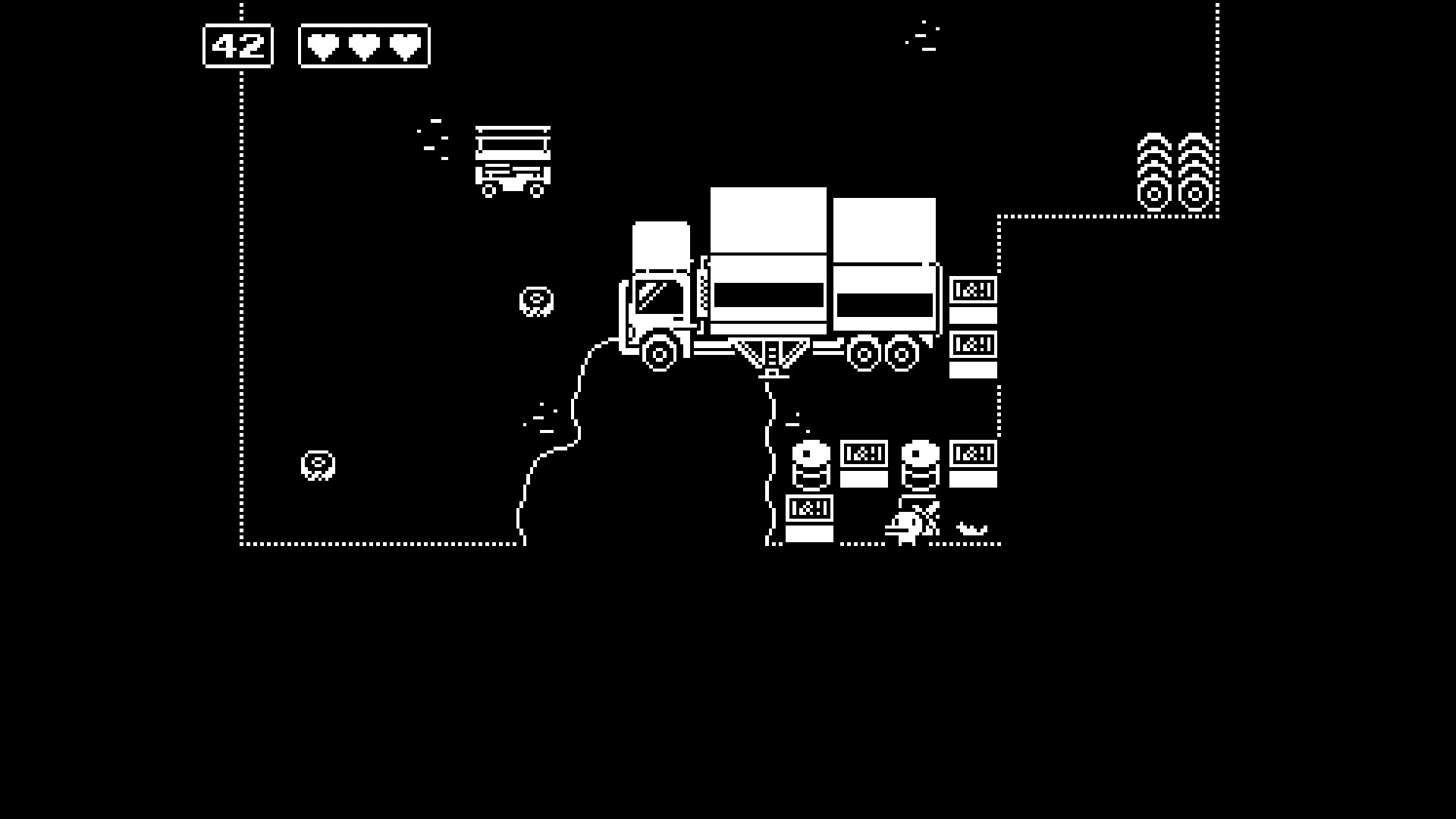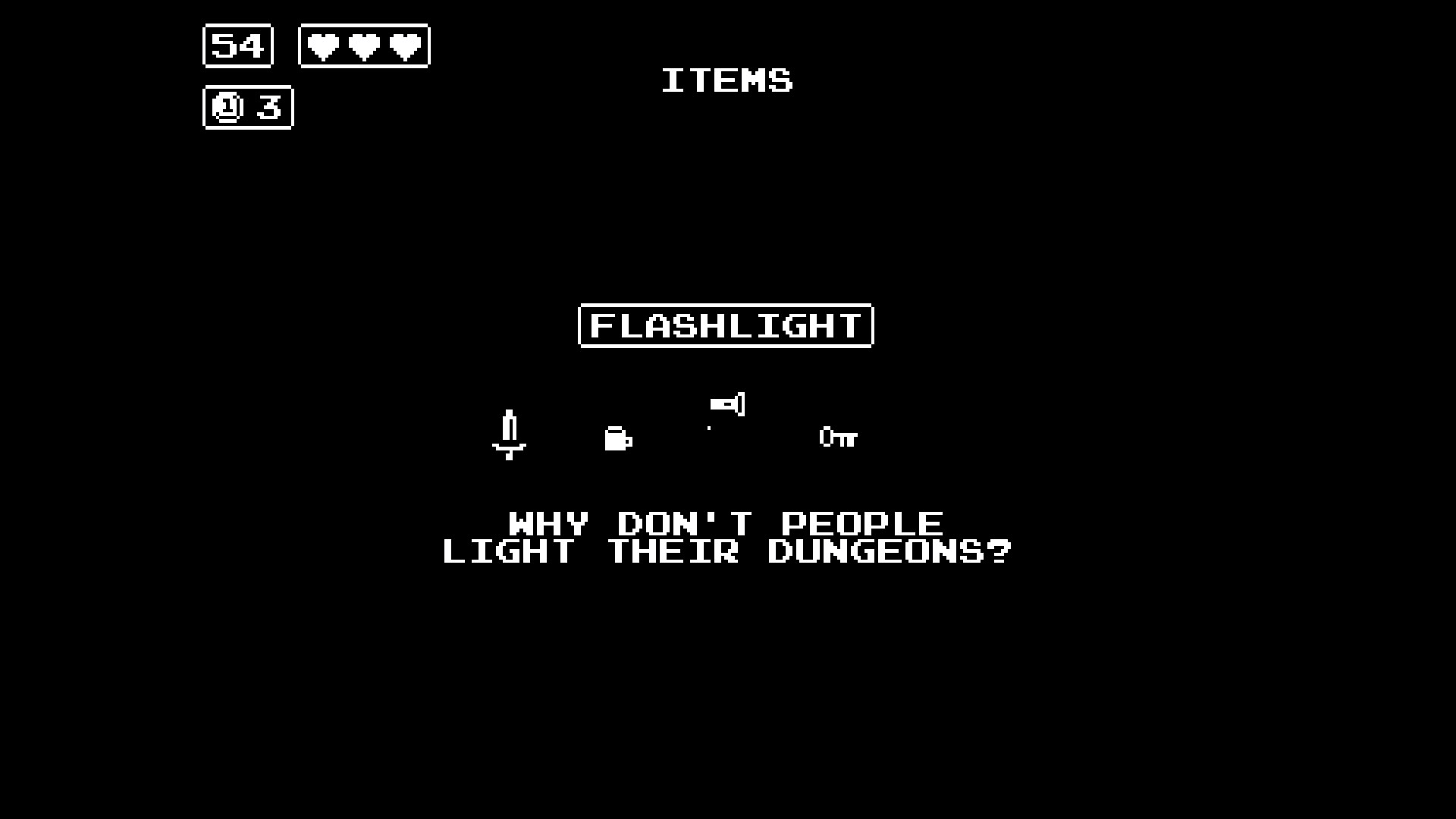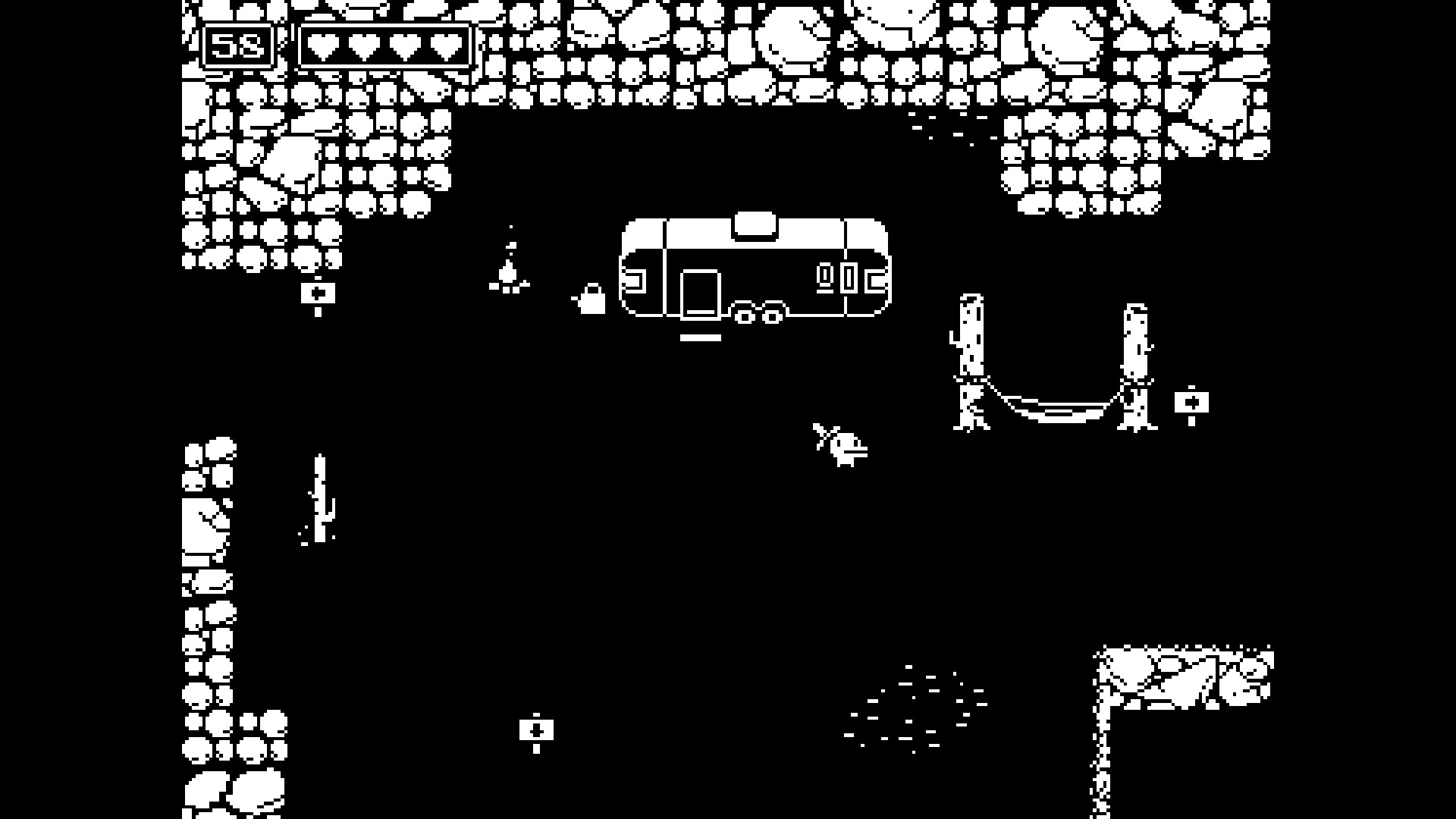Platforms:
Xbox One, PS4, PC
Released:
April 3, 2018
Publisher:
Devolver Digital
Developer:
Jan Willem Nijman, Dominik Johann, Jukio Kallio, and Kitty Calis
Many games have toyed with timer mechanics and putting players on the clock, but few games have made the constant pressure of a ticking clock as central to the experience as Minit. Developed by indie developers Kitty Calis, Jan Willem Nijman, Jukio Kallio & Dominik Johann, and brought to us by publisher Devolver Digital, Minit is a curiously unique take on the adventure game format, and even after many hours playing it, I am still trying to decide whether its various parts have led to a greater whole.
Minit’s central gimmick is right there in the title; you play as an unnamed duck person who has been cursed to die and respawn at their house after 60 seconds have passed. The clock in the corner of the screen is always ticking down, creating a sense of tension as you run around the landscape, solving puzzles and helping people, all before your inevitable demise and rebirth.
The actual gameplay reminded me a bit of the old top-down Legend of Zelda games, where you need to acquire new items to progress further, and half the difficulty is just listening to NPC dialogue and trying to figure out where to go next. The ticking clock element even kind of harkens back to the omnipresent timer from The Legend of Zelda: Majora’s Mask, albeit reducing the time you have to complete tasks from 72 in-game hours to just one real-world minute.

The game doesn’t expect you to literally beat it in 60 seconds. Even though you will be dying constantly, your progress from one life to the next will persist. Helpfully, the game also keeps a tally of how many times you die, which I don’t doubt will lead some players to try and beat the game with the fewest deaths possible. Items and health upgrades you acquire stay in your inventory after death, NPCs remember deeds you did for them, and you unlock new homes throughout the game which act as new respawning points, meaning that you are steadily making progress across the map.
This 60 second death mechanic certainly influenced how I had to approach the game’s puzzles. Even when paths and puzzle solutions seem obvious, the trick is to be able to complete them before the timer ticks down to 0 and you restart at your home. Many rewards for puzzles end up just being shortcuts, enabling the player to make more progress in their next run before dying again. It forced me to become intimately familiar with the geography, as the timer starts ticking down the very second you respawn, so every second you waste is another second you can’t use to go back to your last location.
As someone unaccustomed to speedrunning video games, this game gave me insight into the dedication and memorisation required for such a task. One useful tool the game gives you is the ability to instantly die and reset yourself and the timer at the press of a button, which can be good if you have wasted too much time in that run and would prefer to take it from the top.

However, I feel that this timer also holds the game back in this regard. Adventure games of this type generally rely on careful consideration of puzzles and obstacles, which the timer actively works against. Many times I would enter a new area only to have about 20 seconds with which to investigate it for secrets or hidden pathways before my inevitable death and resurrection 40 seconds from the spot that I died. I found it difficult to become familiar with locations, and got stuck many times during my play as the pressure of the timer stressed me out and hampered my ability to approach tasks methodically.
“Aesthetically, Minit is quite charming, with many adorable and fairly expressive character designs, as well as a fun chiptune soundtrack.”
Aesthetically, Minit is quite charming, with many adorable and fairly expressive character designs, as well as a fun chiptune soundtrack. I also enjoyed the writing and quirky characters, even if there wasn’t much of it.
However, the very minimalist art style and environment design also made it hard for me to get my bearings or distinguish between which environmental objects can be interacted with. What’s more, the timer means that I simply don’t have time to investigate the environment and test what can or can’t be interacted with without feeling like I am wasting my precious time.
Downwell, another Devolver Digital game, had a similar aesthetic, but it used colour in such a way that it was incredibly simple to tell what could be interacted with and in what way at a glance. On the other hand, Minit’s dedication to its retro-inspired monochrome look makes it hard to interpret in the small time the player has.
Finally, and this may be a subjective complaint, but I found actually figuring out how to progress in Minit to be difficult. I understand that ensuring that players know what to do next without giving all the answers away is something of a balancing act in adventure games, but Minit’s minimalist design and somewhat sandbox-y set-up definitely falls on the “not giving answers” end of that spectrum. The game is not very long, but when playing the game, I spent more time than I didn’t fruitlessly backtracking and testing out all of my items in all of the areas desperately trying to figure out how to make progress.
An in-game map with an objective marker, or some clue system to help players who are clearly stuck, such as in many of the Legend of Zelda games, may have been a way to remedy this. Some direction is given in terms of an overall destination, although when you arrive there are very few clues. So gamers unaccustomed to retro adventure game design, or who do not enjoy trial and error, may find Minit daunting.
Positive:
- Charming character designs
- Nice retro soundtrack
- Interesting premise
Negative:
- An art style that doesn't convey helpful detail
- Lack of clear direction for the player
Minit is a unique and interesting adventure game whose gimmick really puts a new spin on the genre. Although a frustratingly minimalist art style and lack of clear direction and useful hints may turn away gamers used to a more forgiving and streamlined fare. There is a lot of charm to be had in the character designs, quirky writing and soundtrack.

















